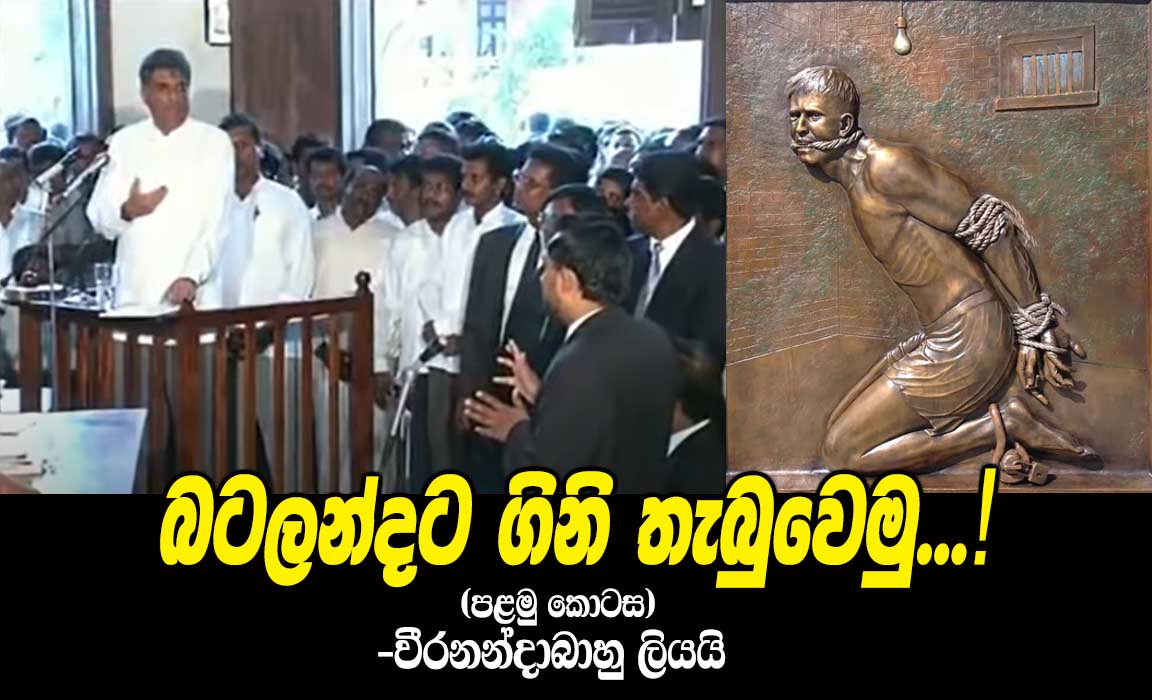Former Inspector General of Police Ernest Perera made a startling revelation regarding the transformation of a government housing complex into a torture chamber. This revelation was recorded in the Batalanda Commission Report.
The Batalanda housing complex, originally under the purview of the Government Fertilizer Corporation, became a site of illegal detentions and torture.
During the Batalanda Presidential Commission, significant details emerged about the misuse of the housing complex.
At the time, Ranil Wickremesinghe was the Minister of Industries, and the complex was under the Ministry of Industries.
According to the commission’s findings, houses labeled A2/2, A2/1, A2/3, A1/7, B2, B1, and B7 were used by Wickremesinghe.
Additionally, houses in the complex were allocated to a police team led by Douglas Peiris, the then OIC of Peliyagoda Police.
Thirteen houses were designated for officers of the Kelaniya Anti-Riot Unit.
The report revealed that these allocations were made under Wickremesinghe’s instructions and orders.
However, some houses were occupied only nominally.
Former IGP Ernest Perera testified before the commission, expressing surprise that Nalin Delgoda, who had a private residence, was allocated a house in the complex but never resided there.
The commission uncovered that the allocation of houses to police officers was done improperly.
There was no official documentation from the police headquarters or Kelaniya division to support the lawful acquisition of these houses.
Former IGP Perera suggested that these allocations might have been based on private transactions.
The commission further questioned whether the improper allocation of houses facilitated the operation of illegal detention centers and torture chambers.
Perera acknowledged that the misuse of the housing complex for such purposes was indeed possible.
The pressing need now is to ensure justice is served.


